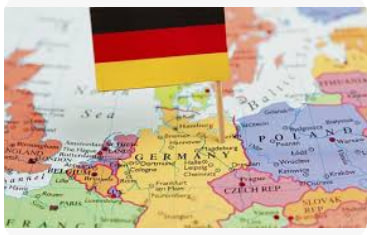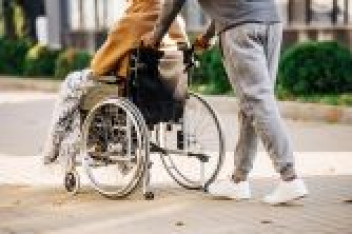Lawyer
How to get a PMP (permanent residence permit) in Germany?
Moving to another country for permanent residence is an important step for many people who are looking for better living and working conditions. Germany, as one of the most developed countries of the European Union, offers numerous opportunities for resettlement on the PMP. In this article, we will consider how Ukrainians can obtain a permanent residence permit in Germany.
Requirements for obtaining a PMP in Germany: who left for permanent residence in another country &
In order to obtain a permanent residence permit (Niederlassungserlaubnis) in Germany, a number of conditions must be met:
1. Duration of stay
You must have a residence permit (Aufenthaltserlaubnis) for at least 5 years. This is one of the main requirements for obtaining a permanent residence permit.
2. Financial stability
You must earn enough to provide for yourself and your family. This means that you should not receive help from the job center (Jobcenter) or the social security office (Sozialamt). Exceptions are child benefit (Kindergeld) and child care allowance (Elterngeld).
3. Knowledge of the German language
You must speak German at level B1 and provide a document to prove it. Knowledge of the language is a key factor for integration into German society.
4. Contributions to pension insurance
You must pay contributions to the pension insurance system (Rentenversicherung) for at least 60 months. The size of the contributions does not matter.
5. Availability of housing
Your apartment must meet the standards of the space required for you and your family. Each federal state has its own requirements for living space. Ask an employee of the department for foreigners or an employee of a consulting organization about this.
6. Work permit
You must have a work permit (Arbeitserlaubnis). This allows you to work without restrictions.
7. Orientation course
You must successfully complete an orientation course that includes integration activities and learning the basic laws and regulations of Germany.
8. Lack of criminal history
You must not commit serious illegal acts. Punishment in the form of a fine in the amount of no more than 90 daily rates or a suspended sentence of up to three months, as a rule, should not be of particular importance.
Simplified conditions for individual groups
Simplified conditions for obtaining a permanent residence permit apply to some categories of persons.
Qualified specialists and scientific workers
Qualified specialists and researchers can obtain a permanent residence permit already after 4 years of stay in the country. To do this, you need to pay contributions to the pension insurance system for 36 months, have a job and speak German at the B1 level.
Holders of the "EU Blue Card"
If you have an EU Blue Card, you can get a permanent residence permit after 27 months. To do this, you need to pay pension insurance contributions, have a suitable job and speak German at the A1 level. If you speak the language at B1 level, you can get the permit after 21 months.
Graduates of German educational institutions
If you have successfully completed your studies in Germany or mastered a new specialty, you can apply for a permanent residence permit as early as two years after receiving your residence permit as a qualified specialist or researcher.
Individual entrepreneurs
Individual entrepreneurs who run a successful business and are able to independently provide for themselves and their families can get a permanent residence permit after 3 years.
Humanitarian permits for Ukrainians
In response to the full-scale Russian-Ukrainian war, the German government extended humanitarian residence permits for Ukrainians under the Temporary Protection Directive, pursuant to § 24 of the German Residence Act (Aufenthaltsgesetz). This directive provides temporary protection and rights to social support, employment, education and health care to those fleeing war.




































